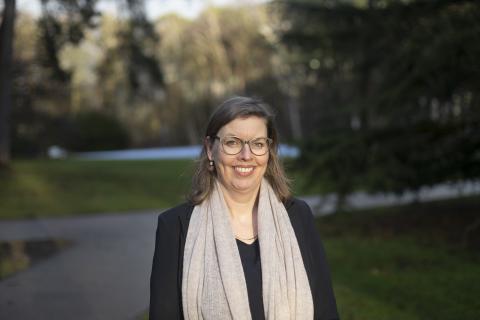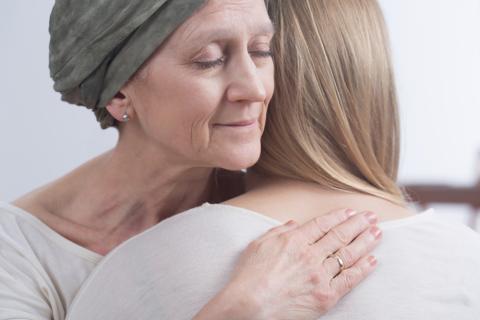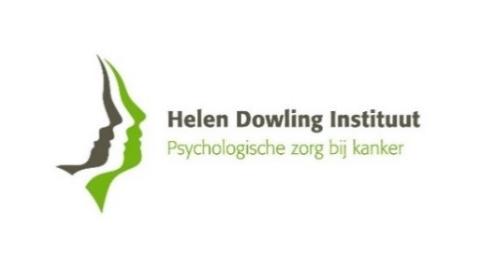Better handle on post-cancer fatigue through network approach
People with cancer are assailed by a great many issues, with physical, psychological, and external factors influencing and amplifying each other. One frequent effect is serious fatigue, afflicting a quarter of patients. Fortunately, there are effective treatments, but what is unclear is which one works best for whom. That is why Endowed Professor of Psycho-Oncology Marije van der Lee advocates the network approach: it identifies what works best for individual patients. “The network approach helps people get a better grip on fatigue. And that is crucial, because cancer has such profound effects to begin with.”
For many common complaints, such as fatigue and anxiety, many scientifically proven treatments are available, Marije van der Lee explains. “These treatments include exercising, relaxation routines, and behavorial therapy. The thing is, the most obvious method isn’t always the most effective one for everyone. Therapists can try a variety of proven interventions one at a time, but that is a time-consuming and often disheartening process. Using the network approach, we can rapidly determine which treatment fits best and will help people more quickly and more effectively.”
Poignant stories
"Even as an undergrad in neuropsychology at the University of Amsterdam Marije did research for the Helen Dowling Institute (HDI) involving women with breast cancer and cervical cancer. “I interviewed these women to find out whether their mental condition affected the course of their disease. Their poignant stories impressed me as much as did their strength, their warmth, and their candor. This study planted the seeds in my mind of finding out to what extent physical and psychological processes in people with cancer influence each other. Because despite no correlation having been found between psychological well-being and the course of the disease, physical and psychological factors can be observed to influence and amplify each other.” For example, when a woman following breast cancer treatment suffers hot flushes and joint pains as a result of hormone therapy, she could consequently also experience sleeping problems. She may start worrying about the pain she is feeling, and having trouble sleeping, she will be more tired and possibly become irritable with her family, which will then make her feel guilty and lead to more worrying."
Interviewing women with cancer planted the seeds in my mind of how physical and psychological processes influence each other
Marije van der Lee

Dualism dilemma
“Dualism, introduced by the philosopher Descartes, sees the body and the mind as two separate entities. It’s this notion that causes all manner of problems when treating the psychological complaints of people with cancer. There is so much these patients have no choice but to deal with. It’s not one thing at a time; it’s everything at once. That’s why traditional treatments don’t always work as expected. One example is thinking of death. This is usually associated with depression and treated accordingly. But people with cancer who think about death are not necessarily depressed; given the situation they’re in, thinking about death is a perfectly normal response. How then can they be helped in coping with these oppressing thoughts?”
When you have cancer, there’s so much you need to deal with. It’s not one thing at a time; it’s everything at once
Low-hanging fruit
In practice, evidence-based therapies don’t work for everyone, not least because cancer throws many different problems at people who also suffer anxieties, gloominess, and fatigue at the same time. So what, in situations like these, works best for whom?

Our report shows: fatigue is an invisible and elusive problem
“Using experience sampling, we try to better understand a person’s fatigue: five times a day for 21 days, respondents log their various activities and complaints in an app. Using those data, we write up a ‘low-hanging fruit’ chart report. Designed in collaboration with TESC in Tilburg, it depicts the fluctuating levels of activity, fatigue, and mood. Fatigue is and invisible and often elusive problem, but the report shows it and can help explain it better. That in turn increases recognition in patients’ immediate circle. The app enables people to get a better handle on their fatigue.”
Unique networks
In addition, network analyses are applied to the experience sampling data to identify the relationship between various complaints and how people cope with them. “I’m really excited about the network approach! It’s a good match with the clinical approach, the holistic theory, and the functional analyses psychologists already use. These techniques address such questions as: What afflicts someone? When does it happen? Why do they persist in certain behavior? The network approach is a good fit and that makes it easy to explain things clearly: it shows how complaints are connected. And for me it helps to resolve the dualism dilemma. Complaints are not monocausal; that’s not how it works in practice. Every network is different and that’s a good thing, because we can now explore for real what works for whom. For some it is acceptance, for others it is relaxation – or indeed increased activity or more exercise. The network approach is a major step towards helping people better.”
Every network is different and that is a good thing! We are exploring for real what works for whom
Implementation
HDI is working hard to implement the network approach, and training therapists is a key component. “We are training them to read the app accurately, because they will then be able to see what works for the patient they are treating. Therapists also learn to discuss appropriate interventions through role-plays. Interestingly, people are more inclined to follow advice if it is based on something they themselves have logged.”

Thanks to a Postcode Lottery donation to the Dutch Cancer Society KWF, HDI can open eight new centers the coming years to treat people using the network approach. “We are also designing a network approach workshop for the Dutch Psychosocial-Oncology Society (NVPO), and we are bringing the network approach to the attention of primary care assistant practitioners (POH-GGZ) and physiotherapists. It doesn’t always mesh with current practice, but that’s not a problem: it’s work in progress. To me it is essential that science and practice connect; that’s what I am committed to achieve.”
About Marije van der Lee
Marije van der Lee is Endowed Professor of Psycho-Oncology at the Medical and Clinical Psychology Department of Tilburg University. She is also a mental-healthcare psychologist and head of scientific research at the Helen Dowling Institute (HDI), the sponsor of her chair “What Works for Whom in Psycho-Oncology” at Tilburg University. HDI assists people with cancer and their next of kin in coping with the psychological consequences of cancer, such as anxieties, fatigue, sleeping problems, and post-traumatic stress syndrome. It offers assistance online and on locations throughout the country, basing treatment on science. In the coming years, help from the Postcode Lottery and the Dutch Cancer Society KWF will help realize eight new locations. Where research comes alive in practice. hdi.nl or follow Marije on Twitter: @Marijeliesbeth1
More research
Within Tilburg University, a group of enthusiastic and committed researchers who investigate the psychosocial consequences of cancer. They work together to gain insight in the psychological and biological processes behind, for instance, fatigue, anxiety, and pain.
Date of publication: 27 January 2022
